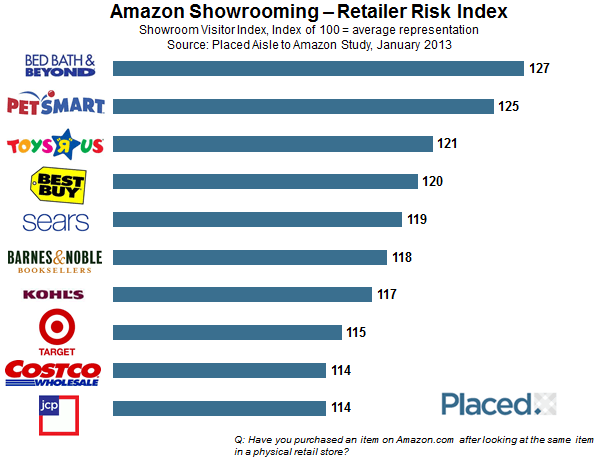A recently published report reveals that a number of brick-and-mortar retailers risk falling victim to showrooming, where consumers go to look at items at a local store before placing orders online. According to Placed: Aisle to Amazon, consumers that showroom and purchase stuff from Amazon are 20 percent more likely to visit Best Buy and 15 percent more likely to visit Target than on average.
The numbers may not seem like much but that’s before you consider that other retailers like Bed Bath & Beyond, PetSmart and Toys ‘R’ Us are even more susceptible to showrooming. Shoppers were 27 percent more likely to visit the home goods retailer and 25 percent more likely to visit the pet supplier than on average. Mega chain Walmart was among the safest retailers despite the fact that they don’t offer online price matching.

Placed founder and CEO David Shim said Amazon was the clear winner in e-commerce 1.0 and unless brick-and-mortar retailers convert from reactive to proactive, Amazon will again win e-commerce 2.0 by riding the backs of offline retailers.
Real-world retailers are well aware of the changing trend as both Best Buy and Target have adopted Amazon price matching policies to help combat the showrooming phenomenon. The reactive strategy may be working to some extent but as Shim noted, retail stores need to be proactive in their approach to avoid further risk.
Data from the Placed study is based on 14,925 US survey respondents as well as the direct measurement of nearly a billion US location data points during January 2013. The study directly measured consumers’ paths in the physical world which allowed them to see the impact of the digital world on brick-and-mortar shopping behaviors.